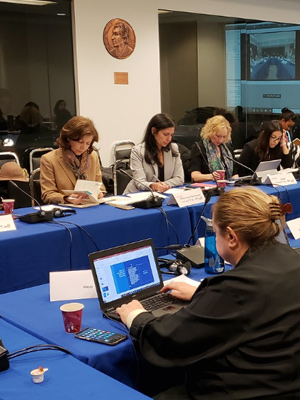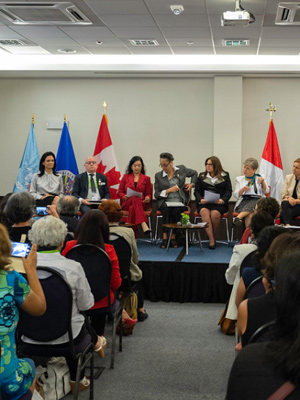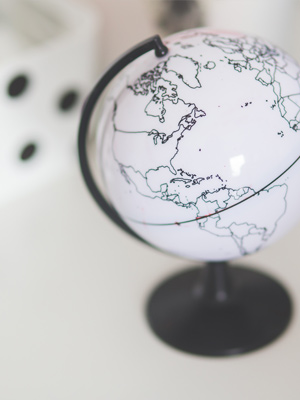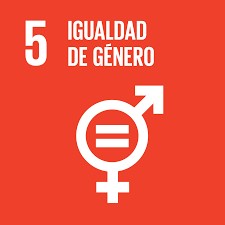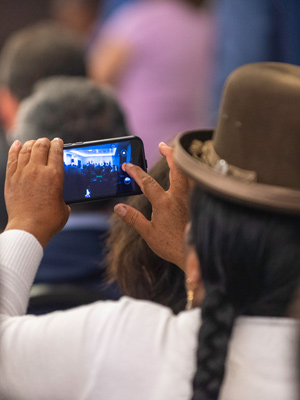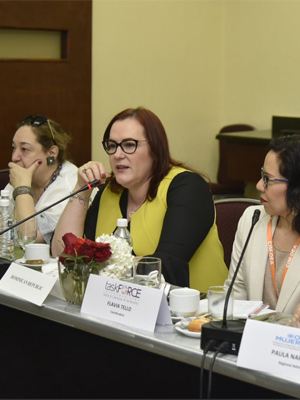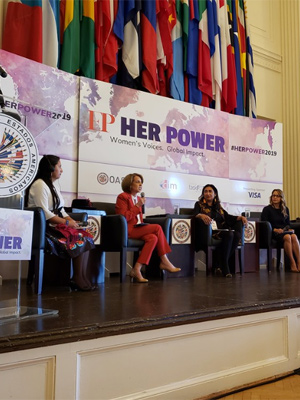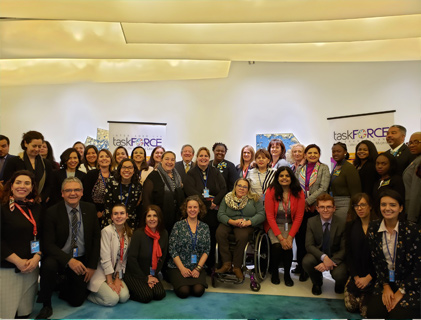- English
Webinar COVID-19: Why can women’s leadership make a difference in the response? Challenges and opportunities in the Americas and the Caribbean beyond the emergency
May 21, 2020
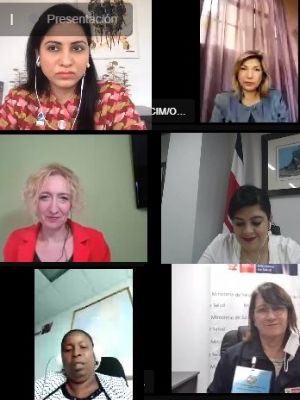
The webinar took place on May 21, hosted by the Inter-American Task Force on Women’s Leadership in partnership with Women in Global Health with the support of the Government of Canada. The event brought women leaders who are confronting the pandemic as well as experts in gender and health, who addressed the challenges and opportunities for women’s leadership during the COVID-19 crisis, making decisions and making a difference for a more inclusive and more effective mitigation.
The event was headed by the Executive Secretary of the Inter-American Commission of Women CIM-OAS Alejandra Mora Mora, who gave the open remarks. The panel was moderated by Anna Coates, Chief of the Office for Equity, Gender, and Cultural Diversity of the Pan-American Health with the participation of the Hon. Minister of National Planning and Economic Policy of Costa Rica, Maria del Pilar Garrido Gonzalo, the Hon. Minister for Social Development, Housing, and Community Empowerment of Grenada Delma Thomas, the Leader of the National Operations Command COVID-19 and the former Minister of Health of Peru, Pilar Mazzetti, as well the Executive Director and co-founder of Women in Global Health, Dr. Roopa Dhatt.
Dr. Roopa Dhatt remarked during her speech: “Women make up the majority of the workforce in the health sector. However, only 20% of the members of most of the expert groups and task forces at global and national levels are women. It’s about time to change that. Women’s voices really matter. The evidence shows that when women participate in decision-making work becomes less individualistic, more collaborative, more analytical with a better approach, with decisions based on evidence and better communication skills. This is the type of leadership that we need at this moment. We are fighting against COVID-19 with one hand behind our backs when we exclude women from leadership roles."
In addition, Dr. Pilar Mazzeti said: “One lesson from this crisis is that women are the ones who come to the rescue of other women, which tells us a lot about this moment in time but also equips us with an interesting perspective for the future. On the other hand, we can see that women are more involved in prevention, care, and planning. Therefore, if women are more educated in health issues, we might have healthier generations in the future.”
Regarding the challenges around the economic crisis, Minister Pilar Garrido remarked: “Women’s perspectives, grounded in innovation, diversity, inclusion, and also a certain way of addressing the challenges based on evidence have been key to managing the effective response in my country. In economic terms, this is very complex because we have to prevent the spread of the pandemic at the same time as we have to establish a roadmap to economic recovery where women play a key role as change makers creating a changed new normality embedded within a transformative momentum”.
Minister Delma Thomas also remarked: “COVID-19 GAVE us THE opportunity to address our strategies addressing inequalities. I think we, as women parliamentarians, women cabinet members, and women in decision-making roles are in a good seat to drive and push for decisions, strategies and public policies necessary to help and support women who are facing this crisis in more vulnerable conditions.”
More than 340 participants tuned in during the webinar from 25 countries of the Americas (Argentina, Barbados, Bolivia, Brazil, Canada, Chile, Colombia, Costa Rica, Ecuador, El Salvador, Guatemala, Grenada, Honduras, Mexico, Nicaragua, Panama, Paraguay, Peru, Puerto Rico, The Dominican Republic, St. Lucia, Trinidad and Tobago, Uruguay, USA and Venezuela), as well as from different countries around the world (Bangladesh, Cameroon, Germany, Ghana, Indonesian, Iran, Jordania, Kenia, Myanmar, Netherlands, Nigeria, Palestina, Pakistan, Philippines, Rwanda, Romania, South Africa, South Korea, Spain, Switzerland, Uganda, United Kingdom and Zimbawe).
The recording of the webinar is available HERE;.

